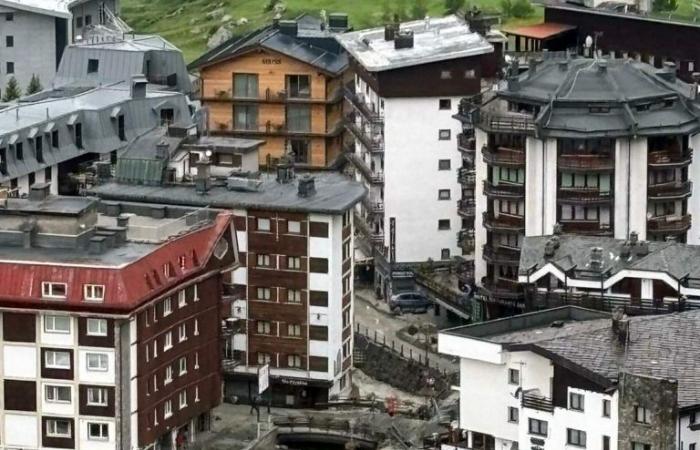We need governance of the climate crisis
Climate change is the main threat to human health. WWF calls for immediate action to stop global warming by reducing greenhouse gas emissions and taking the adaptation measures needed to limit the damage resulting from the climate crisis already underway
A torrential rain, violent and intense, the likes of which have not been seen in about 20 years in Valle d’Aosta and Piedmont. Landslides, torrents overflowing, Cervinia in the mud and Cogne isolated with hundreds of citizens evacuated and just as many to be rescued. Temperatures recorded at high altitudes show, from 1981 to 2023, a continuous race upwards. Damage still incalculable for the two Italian regions, while between Switzerland and France seven new victims of extreme weather events are counted.
Landslides and floods increasingly frequent
Scenarios of landslides and floods are now tragic protagonists of our territories and for the WWF it is increasingly evident that we live in a new “State of permanent climate calamity”, where the climate crisis constitutes the greatest threat to the safety of citizens, with record temperatures and extreme heat that alternate with violent rainfall and devastating floods. This, then, insists on fragile territories and without a serious assessment and prevention of risks.
What happened in Cogne is caused by climate change, which now multiplies extreme events that were once very rare, making them almost daily, but also highlights all the delays of our country in addressing, predicting and mitigating it. Local administrations have preferred speculative projects and those linked to the push for mass tourism rather than projects for protecting the territory and mitigating it. And parking lots and camper areas have sprung up a stone’s throw from the streams, now submerged by water. Among the 200 evacuees were also the boys and girls who were participating in the tent trekking camp “Into the wild” by WWF Travel and the Indaco cooperative. Given the situation, the Valnontey campsite was abandoned in time and the minors were among the first to be transferred to Aosta by helicopter.
The multiplication of extreme climate events highlights even more the urgent and urgent need to equip ourselves to address the causes and consequences of global warming. Scientists tell us that the window to intervene and limit global warming to 1.5° C risks closing if we do not change pace immediately. Mitigation (i.e. cutting greenhouse gas emissions) and adapting our territory and all activities to climate change must become the axes of economic and political planning action. For the WWF, it is therefore essential to bring planning back to the hydrographic basin level, to effectively manage water resources and hydrogeological instability; it is essential to promote nature-based solution interventions, naturalistic engineering and environmental restoration aimed at reducing the extreme vulnerability of our territory. Instead of working to address the climate crisis, we often make excuses for not doing so, except that the media is then forced to report the news of disasters, floods, heat waves, fires: risks that no longer spare any of our environments from the mountains to the coast, from the forests to the plains. Not to mention the cities.
Protecting the mountains and its water reserves
It is necessary to protect the mountains and their water retention capacity, which is put into crisis not only by these extreme events but also by widespread mismanagement, to give space back to the rivers, recovering the areas of natural flooding and restoring, where possible, the old river routes and to start widespread renaturation interventions across the territory. A climate change adaptation policy that goes beyond the emergency logic and considers its effects in ordinary planning is increasingly urgent. Unfortunately, the situation is constantly worsening as demonstrated by the data on land consumption which has started to run again with greater force than in the past, exceeding the threshold of 2 square meters per second, something like 77 square kilometers of new artificial cover in a year, 10% more than in 2021, an unsustainable pace that also depends on the lack of effective regulatory interventions in much of the country or the wait for their implementation and the definition of a homogeneous framework at national level.
WWF calls for immediate action, before the counter of tragedies and victims continues to run. But to act well it is necessary to finally have a climate governance, in other words to immediately approve a law on climate and a law to limit land consumption, as well as to fully implement the National Plan for Adaptation to Climate Change approved in December and then put in a drawer: without wasting any more precious time.



